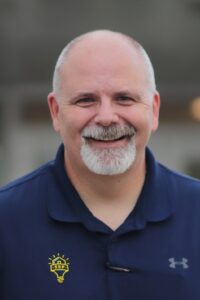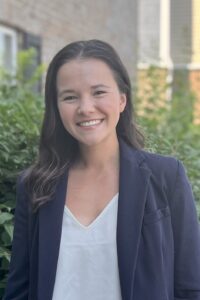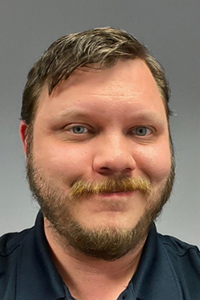ADVISE
At SBP, we know that state and local governments are the key actors that determine how well communities prepare for and recover from disasters. Despite recovery programs receiving billions of dollars, program implementation and outcomes are untimely and inconsistent, allowing the most vulnerable survivors to slip through the cracks. That’s why our Advise Team is devoted to the empowerment of government capacity – to deliver predictable and equitable recovery to disaster survivors everywhere.
Our work stems from three premises:
(1) State and local governments are best positioned to meet the recovery needs of their most vulnerable citizens.
(2) State and local governments can and must do better at meeting those needs.
(3) SBP is well-positioned to increase capacity, provide training on outcomes-focused program implementation, and share technical knowledge and experience.
Need Help? Lets Talk: advise@sbpusa.org
What We Offer
After more than 15 years of serving disaster-impacted communities all over America, we have seen all the ways that the response and recovery process is fragmented, inefficient, and prone to failure. In envisioning a better tomorrow, we have developed a variety of programs to tackle these challenges.
Disaster Response
If you are a local government leader and your community has just experienced a disaster, there are key decisions you can make to shrink the time between disaster and recovery for your most vulnerable citizens.
Long-term Recovery Programs
SBP’s Advise Team, composed of experienced CDBG-DR & MIT program leaders and community development professionals, provides multiple virtual and live training opportunities on proven, best practices and strategies for increasing the effectiveness and efficiency of CDBG-DR & MIT program delivery. To learn more about our CDBG-DR & MIT program services, click one of the buttons below.
Mitigation and Resilience Programs
The communities most likely to face disasters and struggle to recover often have the least capacity, experience, and trained personnel to access federal resilience and mitigation programs such as FEMA's FMA, BRIC, and HMGP. To address this issue, SBP's Resilience & Recovery Fellows Program assigns technical experts to low-capacity, rural, small, and medium-sized communities that are considered most vulnerable to disaster. SBP's Fellows provide essential capacity to government offices in underrepresented communities, enabling local governments to listen to diverse stakeholders and lead planning efforts for accessing the federal and philanthropic resources needed to achieve local long-term resilience goals. SBP is also developing training and advisory services on FEMA mitigation and resilience programs to empower state and local public servants for the effective implementation of high-impact projects.
Our Team

JR Sanderson is SBP's Senior Government Adviser. He holds a Master's of Public Administration from Western Kentucky University, a Master's of Military Arts and Science, and a Master's of Strategic Studies from Air War College. He is a retired Army officer whose last military assignment was as Chief of Staff for the Army Training Center at Fort Jackson. He is well-known in the disaster recovery field for designing and leading the highly successful South Carolina Disaster Recovery Office in the aftermath of Hurricane Joaquin in 2015, Hurricane Matthew in 2016, and Hurricane Florence in 2018. Having developed the strategy for a $157M CDBG-Mitigation grant, JR's disaster recovery efforts in South Carolina resulted in high-quality services being provided to citizens in 22 counties in a record-setting time. For these efforts, Governor McMaster awarded JR the Order of the Palmetto, the State of South Carolina's highest civilian honor.

Reese May is a two-time combat Marine veteran, SBP’s Chief Strategy and Innovation Officer, and oversees SBP’s strategic operations across the United States. In this capacity, Reese consults with community and elected leaders at all levels on how best to develop and implement long-term disaster recovery programs to avoid common mistakes and barriers to a prompt, efficient and predictable recovery. Reese has led SBP’s long-term recovery efforts in Missouri, New York, New Jersey, South Carolina, and Texas. Reese’s work and policy recommendations to high-ranking government officials following severe flooding in South Carolina, Texas, and elsewhere have enabled communities to recover more efficiently and effectively. Reese holds a B.A. in Political Science from the University of Southern Mississippi and is a Truman National Security Fellow.

Hannah Trautwein is SBP's Disaster Preparedness and Recovery Analyst and oversees Advisory and Advocacy projects for SBP. Prior to joining SBP, Hannah worked with the West Virginia Department of Economic Development to implement the CDBG-DR program following the severe storms of 2016. Previously, she served as a Community Partnership Coordinator immediately following the storms of 2016 and oversaw immediate and long-term recovery efforts, consulting with state and local agencies to direct the efforts of over 3,000 volunteers in the years following the historic floods. She was simultaneously certified as a disaster case manager during this time and served with the Kanawha County Long Term Recovery Group. Before her involvement in disaster recovery, Hannah moved from her hometown of Savannah, Ga to central West Virginia, to build homes and support community development efforts in rural Appalachia.

Joe Boyes has over ten years of experience working in state disaster recovery and local government planning. His most recent role was Disaster Recovery Director at the South Carolina Office of Resilience, where he was responsible for the oversight and administration of approximately $450 million in HUD CDBG-DR and CDBG-MIT funds. He began his disaster recovery work in the South Carolina Disaster Recovery office in 2015 after Hurricane Joaquin. As Policy and Procedure Manager, he was responsible for the creation of all action plans and policy documents for HUD CDBG-DR and CDBG-MIT programs administered by the state. He wrote the action plan for the 2016 Hurricane Matthew grant, CDBG-MIT grant, and 2018 Hurricane Florence grant. Joe went on to head the program’s operations as Director of Operations and Deputy Program Director, where he had direct oversight of both CDBG-DR and CDBG-MIT programs. He has also served as an Adjunct Professor for the Disaster Resilience and Recovery Lab’s CDBG-DR Leader Practitioner Course since 2019. Prior to his work in disaster recovery, Mr. Boyes served in a number of capacities in local governments in South Carolina with direct responsibility for planning and zoning functions.

